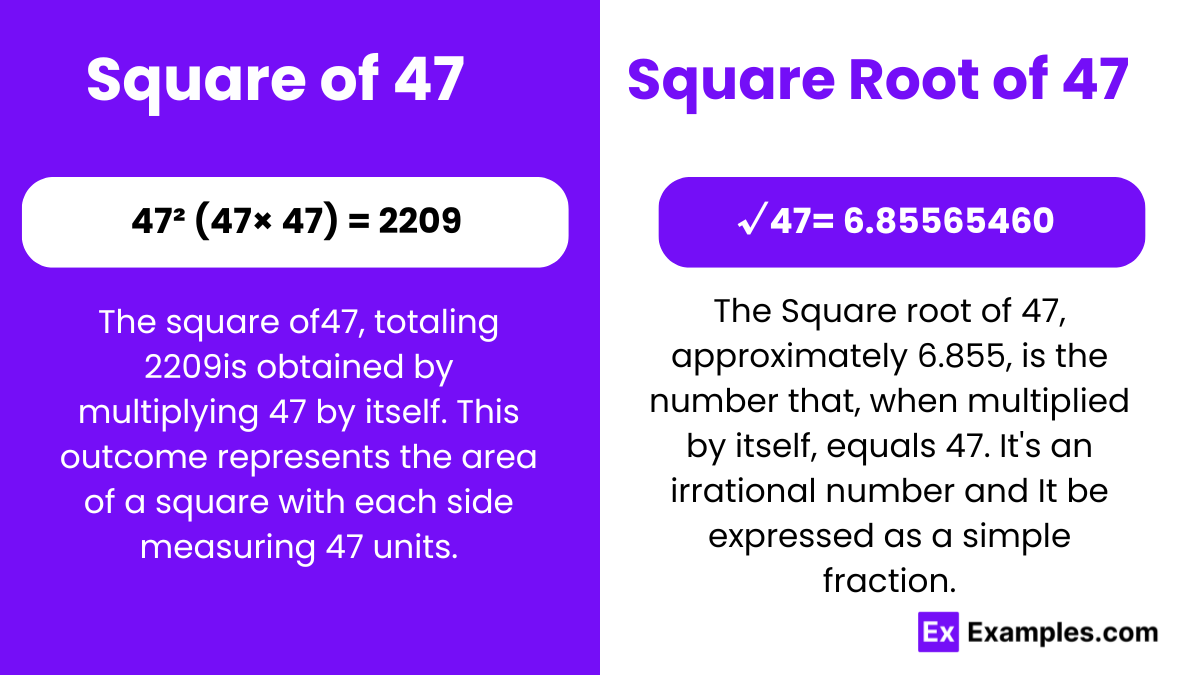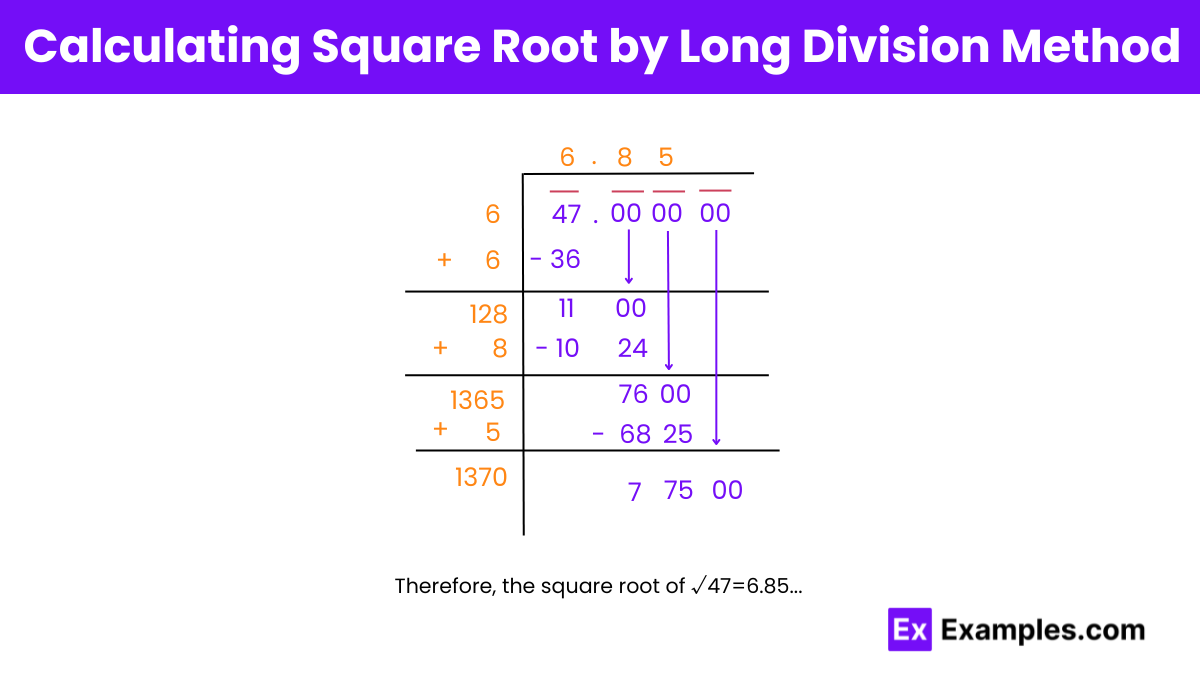What is the square of 47?
2,179
2,200
2,209
2,220


In algebraic mathematics, understanding square numbers is crucial. The square of 47 is calculated by multiplying 47 by itself, resulting in 2209. This operation is fundamental for exploring mathematical properties and patterns, providing insights into the behavior of numbers within mathematical contexts.
In algebraic mathematics, the square root of 47 is essential. Calculated as an irrational number approximately equal to 6.85565460, it is the number whose square equals 47. Understanding square roots enriches comprehension of mathematical relationships, offering insights into numerical behavior and patterns.
Exponential Form: 47^(1/2) or 47^(0.5)
Radical Form: √47
This is because 47 is not a perfect square, and its square root cannot be expressed as a simple fraction of two integers.
An irrational number, such as √2 or π, cannot be expressed as a fraction of two integers. Its decimal expansion neither ends nor repeats, thus it defies representation in the form a/b.
A rational number can be expressed as a fraction of two integers, denoted as a/b, where the denominator isn’t zero
To find the value of the square root of 47, you can use several methods. Here are two common approaches:
1. Long Division Method:
2. Calculator Method:
3. Approximation Method:

Step 1: Starting from the right, pair up the digits of 47 by putting a bar above them. Also, pair the 0s in the decimals in pairs of 2 from left to right.
Step 2: Think of a number whose square is less than or equal to 47. In this case, that number would be 6.
Step 3: Dividing 47 by 6 with the quotient set as 6, we get a remainder of 11.
Step 4: Drag a pair of 0s down and place them next to 11 to make the dividend 1100.
Step 5: The divisor (6) is doubled and written below. Now, we have 12X as the new divisor, and we need to find a value of X that makes the product of 12X × X less than or equal to 1100. In this case, 128 is the required value.
Step 6: The new divisor for the next division will be 128 + 8 = 136. The number 5 is placed in the quotient after the decimal place. The new divisor for the next division is 1365.
Step 7: Proceeding in the same manner and repeating from step 4, we can calculate the rest of the decimals.
A perfect square is a number that can be expressed as the square of an integer. Since there is no integer that, when squared, equals 47, it is not a perfect square.
47 is divisible only by 1 and 47. This is because it has no other factors apart from 1 and itself.
Yes, 47 is a prime number. A prime number is a natural number greater than 1 that has no positive divisors other than 1 and itself. Since 47 has no divisors other than 1 and 47 itself, it is classified as a prime number.
Yes, 47 is a real number. In mathematics, real numbers include all rational and irrational numbers, and 47 falls under this category as it is a rational number.
Text prompt
Add Tone
10 Examples of Public speaking
20 Examples of Gas lighting
What is the square of 47?
2,179
2,200
2,209
2,220
What is the approximate square root of 47?
6.7
6.8
6.9
7.0
If you square the square root of 47, what do you get?
46
47
48
49
What is the result of squaring 46?
2,076
2,116
2,236
2,146
What is the value of 47 squared plus 2?
2,211
2,209
2,210
2,212
What is the exact value of the square root of 47 when expressed as a decimal?
6.80
6.855
6.85
6.75
Which number squared gives a result closest to 47?
6
7
8
9
If the square of a number is 2,209, what is the number?
46
47
48
49
Which number has a square root that is between 6 and 7?
45
46
47
48
What is the result of squaring the square root of 46?
45
46
47
48
Before you leave, take our quick quiz to enhance your learning!

